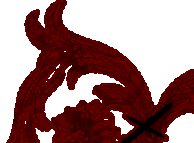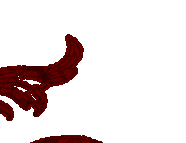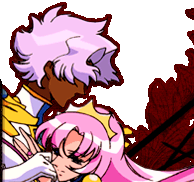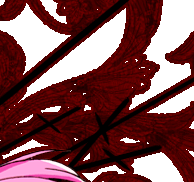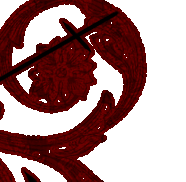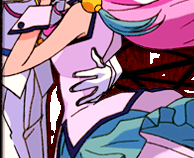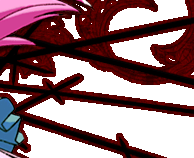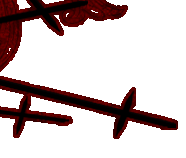
This analysis
was donated by Hugo Schmidt. 
Ah, Revolutionary Girl Utena! The finest anime ever created, bar none. So intricate that fourteen years in, I am still unpicking strands, still seeing how the great clockwork clicks together. (A municipal orrery, n'est-ce pas?)
Right at the heart of this is the figure of Anthy. Everyone I know has gone through the phases of pitying her, disliking her, and absolutely hating her guts. What's been next to impossible is understanding her. Who is this terrifying girl with the shiny glasses who plays the perfect friend (and wife!) to our hero, and sneaks off in the evening to screw the great villain who also happens to be her brother? Who is this woman whom the whole campus elite is fighting over, and yet no one seems to really possess? Why does she still go to Akio night after night, when all along she has the power to just… walk away? We need to talk about stories for second. Stories are fundamental to who we are. Stories, our ability to weave them, makes us human. The biologist Jack Cohen writes, We are not Homo sapiens, the wise man. We are Pan narrans, the storytelling ape. So true. Stories surround us. Not just in books and on television, not just in the sanctified spaces we call churches and temples, but in our every day lives. We all have a script in our head, one which tells us what we are and what we are doing. The script never really leaves us, but it is so much louder in adolescence. The stories are very strong then: I am the misunderstood genius! I am the next great writer! I am… You fill in the blanks. Stories are omnipresent, but they have a terrible dark side. That dark side comes when you forget that, just as you are the center of your own story, everyone else is the center of his or her own story. Inconsiderate swine that they are, they don't seem to take our stories into consideration, don't seem to care that we have already carved out a perfectly good role for them. The nerve!
I'm being facaetious, but the subject really isn't that funny. Think of Saionji: his fury at Anthy derives from her unwillingness, post duel, to conform to the role he'd drafted for her. His baffled, vindictive anger derives from her reality going off script. That's barely fiction, that's textbook abusive personality.
The root is the deletion of another person's reality in favour of your own fantasy. That isn't limited to anything as crude and obvious as Saionji's fists. It manifests in other ways - for example, a man caught in a relationship where he is consistantly shamed and denigrated for the slightest thing will often say, But at first it was amazing, she seemed to worship everything I did… that's the point. The abusive partner was never in love with him, she was in love with the mental construct she'd made. She was in love with her fantasy prince, and he was merely the blank canvas onto which she painted.
So, back to Anthy. Anthy is the ultimate recipient of this sort of dehumanization. She is repeatedly and routinely dragooned into playing the role in another's story. That is by no means limited to Saionji; Utena places her squarely in the role of princess in the story Utena: The Prince. Miki, for crying out loud, replaces her reality with his dream of the Shining Thing. Even the arch-cynic and sophisticate Touga falls into this trap. He sees that Anthy plays the role wanted by whomever she is engaged to, and concludes that she has no real personality, that this is her nature. He doesn't see that that is just another role, one that he forces on her.
So: is this the truth of Anthy, that's she's the victim to whom we owe nothing but sympathy? Much too simple. Here comes the next layer. Re-read the previous paragraph: Anthy, quite deliberately, plays these roles. She encourages her own dehumanization. By embracing her victimhood, she triumphs, becoming the moon, the queen of illusions. Think about how she sets up Miki in the first season; she never says she wants to be with him, or that she is unhappy, but she sets up situations - playing the Sunlit Garden etc. - that she knows, has to know, Miki will misinterpret.
Anthy might well respond, "Oh, I never said anything to lead him on, he misinterpreted on his own…" Sorry, not acceptable. Let's remember that Ohtori is a school, despite the apparent lack of learning. Miki is still a kid, whereas Anthy very much is not. It's fine to be annoyed or exasperated by adolescent immaturity, it is not fine to hate adolescents for their immaturity, and it is still less fine to take malevolent advantage of it. Think of another of Anthy's victims, Nanami. Yes, Nanami is an airhead and an 'alpha bitch' who'd be the terror of any normal high school series, and yes, it is lovely to see her get taken down a peg or ten. Yet think of the end of Nanami's Egg when Nanami, having found something that she really cares for and loves, has it taken away. Did you really feel like laughing at her then, or at the expression on Anthy's face? Then consider what Nanami goes through subsequently; yes, we might want to see Nanami deflated, but she is still a child, and does not deserve to be thrown into the world of adulthood with the real monsters. All this is even before I've mentioned victims like Wakaba and Kanae.
So: Anthy is a victim, no wait, she's actually malevolent, no wait, she's being dehumanized and therefore a victim, no wait, she is helping encourage that and is actually a villain…
All of these things are true. She is both of these things, and so much more. Here we see the last target of Anthy's deception and illusion: it's us. You and me, dear reader. Anthy, the Queen of Illusions, reaches through the screen and pulls the same trick on us. We're the ones who are pushing her into being either a villain or a victim. Hats off, and a standing ovation if you please!
(On facebook I saw a discussion saying that Anthy was a great symbol for the struggle against hetero-patriarchal norms. I laughed and laughed. The writers fell into the same trap - they dragooned her into their story. She's no more a symbol than she's an obedient girlfriend or princess.)
Now sit back down and buckle up, because there is more to come. Out of all the people in Ohtori, who is the one person who acknowledges Anthy's reality? Who is the one person who grants her that essential, fundamental dignity?
Akio.
Akio may be many things, most of them unpleasant, but he is the one person who actually sees Anthy for who she is. He is the one person to whom she can go to and not pretend. In the same way, Anthy is the one person who sees Akio in totality, both what he was as Dios and what he is now. Look again at that scene in the last episode when Akio has tears streaming down his face and Anthy look with real compassion for once: these two know each other and accept each other in entirety.
Where did this all start, after all? Dios the Prince was being victimized in the same way, he was being forced to play the role in all the stories of the angry people, people who did not care what it was doing to him, who demanded that he sacrifice himself over and over to their stories. Anthy, the only one who truly cared for him, chose to take that burden on herself.
But enough is enough.
There is one other person who sees Anthy for what she is, and that is Utena. Not the "I am a Prince" Utena, but the little girl Utena who lost her parents. Before she decided she would be a prince, Utena was a girl who saw Anthy's terrible suffering, and saw it was wrong. In the end she manages to fight her way out of her own story, and see Anthy fully, and so let Anthy realize that she does not need to be both victim and victimizer, that she can just leave.
G.K. Chesterton wrote that fairy stories aren't important because they tell children monsters exist. They are important because they tell children monsters can be beaten.
Revolutionary Girl Utena is a story about stories. We've seen here how stories can lead you into dark places, to cruelty or just uncaring. Yet if Utena had not believed in her story of being a prince, would she have picked up that bamboo sword to defend her friend? Would she have refused to hand Anthy back to Saionji if she didn't see herself as the saving prince? Would she have been better off despising stories about courage and loyalty and friendship? Touga did that, and you see where it got him.
"The Prince" may be an illusion, but her courage and her actions are very real. It is Utena's triumph to see that the story may be over, but what she takes from the story is real and valuable. In her story we see the power of stories and their limits, that as children we need stories, and when we become adults we need to grow beyond them, that there may not be fairy godmothers and princes on white steeds, but there are still monsters that need to be fought, and courage is still needed, and friendship and loyalty are fine things to be treasured and defended. That is the triumph of Utena, the Revolutionary Girl.
 |

